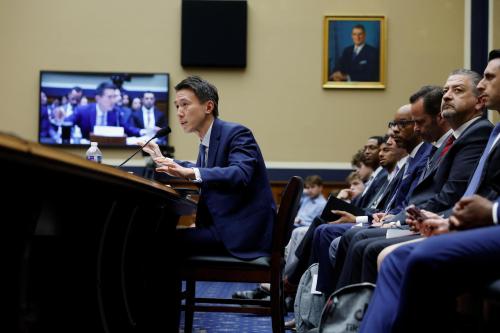It is almost inevitable in a dynamic economy and society such as that exists in the United States, that law lags developments in the market place. The financial services industry provides a vivid illustration.
For several decades, banking organizations were finding ways, albeit inefficiently, to operate in multiple states through separate banks, despite the federal prohibition of interstate branching. Eventually, in 1994, Congress enacted the Riegle-Neal Interstate Banking Act to allow nationwide banking. Similarly, during the 1980s and 1990s, banking organizations were attempting to offer a broader array of financial services to meet market demands, within the confines of the Bank Holding Company Act (BHCA), which to some extent inhibited them from doing so. Eventually, Congress fundamentally overhauled the BHCA in 1999, through the Gramm-Leach-Bliley Act (GLBA), and allowed banks and other financial institutions to operate, if they so chose, as fully diversified financial institutions.
The financial marketplace, as a result of these two acts, is very different than it was just a short time ago. Consumers and firms can now do business with the same bank in multiple states without having to open accounts with separate banks. In addition, the changes under GLBA have unleashed a number of major financial institutions to offer an array of banking and non-banking services to their customers. In the process, financial markets are gradually becoming more competitive, which was the main objective of both the Riegle-Neal Act and the GLBA.
The failure of Enron and several other major companies in 2002, however, has caused some to question the wisdom of the GLBA, and specifically the closer alliances between commercial and investment banking that it and preceding deregulatory measures have permitted. In particular, charges have been leveled at bank lenders that they may have extended loans to these companies (which later could not repay them) at bargain basement rates on the condition that they use the investment banking services of the banks’ affiliates. If true, then such “tying” arrangements would violate at least three provisions of federal law: the long-standing anti-tying prohibition under Section 106 of the BHCA; the requirement under Section 23B of the Federal Reserve Act that bank loans made to customers of affiliates under many circumstances be on “arms-length” terms; and the general requirements under federal banking laws that banks operate in a “safe and sound” manner. Both the Comptroller of the Currency and the Federal Reserve Board have looked into these charges and so far found them without basis (although the regulators are continuing their investigation).


